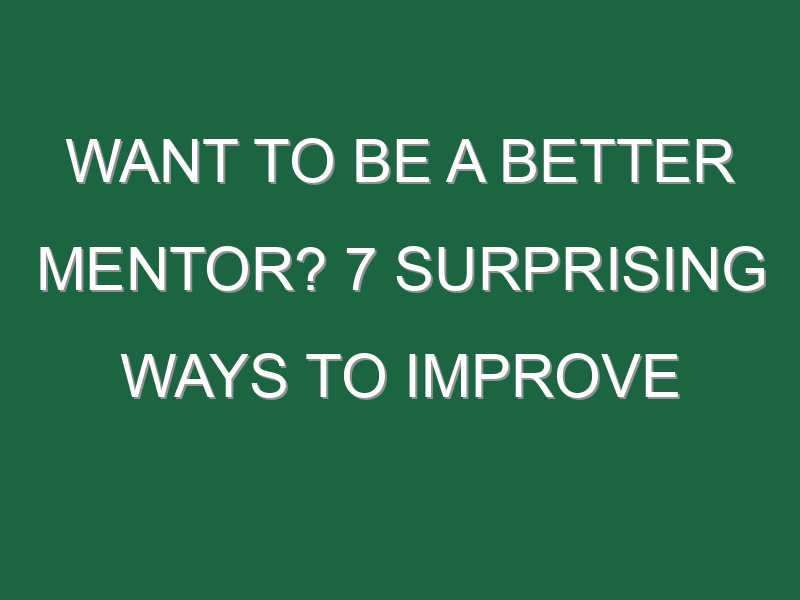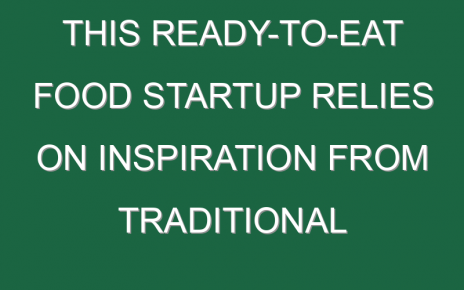I decided to leave my senior-management job last year to launch my own startup. Once the initial shock wore off, my boss and I dived into the transition and handoffs of my teams, responsibilities and unfinished projects. Then she asked for one last thing: a presentation to colleagues on mentoring.
“That’s your superpower,” she said.
The exercise forced me to reflect and examine my leadership style in a different way. Mentorship, both the give and take, was not just consistent in my career but a cornerstone of its success.
It’s certainly a growing trend in the workplace. Whereas workers once had to search on their own or within professional networks, companies increasingly offer formal mentoring and coaching. Nearly three-quarters of Fortune 500 companies have mentoring programs. And a Deloitte survey found that 61% of millennials have a mentor, and their ideal week devotes more time to fostering these relationships.
Mentors gave me the confidence to embrace risk (including starting my own business), while mentees consistently change my world view, disrupt my comfort level, expose me to new platforms and technologies.
Indeed, research shows career mentoring has reciprocal benefits and is not only beneficial for proteges. That’s the first secret I shared in my swan song: I get more out of this than they do. Fresh from my time running a large team in a Fortune 10 company, I share other lessons learned to support your shift from manager to mentor:
- You must believe. This is so simple but key to any relationship you are trying to develop. If you don’t believe that the people around you can grow, rise to meet challenges, be truly excellent, then your efforts will be perfunctory and insincere. Talent is rarely innate and everything can be learned. To approach work, creativity and management with this philosophy—you can do it!—is liberating for staffers, especially those early in their careers. It is impossible to ask people to have confidence in themselves if we do not have said confidence in them. Studies bear this out: In a June survey by PwC, employees said the greatest way a company could boost their confidence was with more compassionate, empathetic leadership.
- Feed people, early and often. My grandfather was a farmer and a contractor in a village in India. He was known for his honesty, and my grandmother worried “nice guys finish last” and that this trait would lead them into poverty or being swindled. She devised a system of feeding workers before they went into the fields or onto jobs. That bred loyalty and personal connection, and in her words, “They care less when I yell at them.” Nearly a century later, I borrowed the approach in the pandemic by sending colleagues meals, plants and candles to show support even as work demands intensified. Once a staffer tweeted that she was missing her mom at Easter so I sent a basket of plastic eggs and candy. Gifts need not be expensive as much as meaningful, and food literally nurtures. My grandmother was onto something: Well-fed people who feel connected to you might actually heed your vision.
- Three guiding questions. I have found myself facing many a tongue-tied protege. Someone probably told them they should network, find a mentor, seek answers from more experienced professionals—but they don’t actually know what to ask. It’s on mentors to put these folks at ease and guide next steps. I learned to ask pointed but existential questions. They are: Are you happy? What brings you joy? What do you want to do? Often, the response is: “Nobody ever asked me that before.” (Translation: “I never asked myself that before.”) Figuring out what you want is probably the hardest part of career discovery.
- Love and uplift Black and Brown talent. I’ve spent most of my life advocating for diversity and inclusion at home and work. It is baked into my leadership style. But this rule, when applied to mentoring, is more than advocacy. Because people of color face so much implicit bias, often at work, it’s on us managers and mentors to counteract those forces. I believe in what comedian Dave Chappelle dubbed a “kindness conspiracy” on “Saturday Night Live” last year. “Do something nice for a Black person just because they’re Black, and you’ve got to make sure they don’t deserve it,” he said. “It’s a very important part of it, they can’t deserve it, the same way all these years they did terrible things to Black people just because they’re Black and they didn’t deserve it.” How to apply this: Prioritize people of color, in both who you choose as mentors and mentees. If I am running a meeting, I check invite lists for representation. I call on folks who have not spoken. It becomes second nature after a while, leading me to believe we can combat our own biases once we acknowledge they exist and work constantly to compensate.
- Always be hiring. I try to have three non-agenda calls or meetings per week with younger talent. This helps create a deep bench of folks to turn to when the perfect opening eventually arises. Because these conversations yield high-potential hires, the strategy allows subsequent job interviews to be more about “selling” the chance to work with us and answering questions about the role.
- Help the people you mentor tackle issues of chemistry. A recurring issue in the workplace is what to do if two people don’t get along. Here, I encourage mentees (and myself) to literally try to reset the chemistry, or at least the influence that person has over one’s moods and sense of work and worth. Sometimes, overtly approaching the colleague in question and saying you want to reset is a welcome overture; they’ve likely been feeling the tension, too. Once I encouraged a team member to do this, and he returned, laughing, “All he wants from me is a monthly traffic report. Easy enough. We never knew what the other actually wanted.”
- You can’t be who you are not. This is the most important lesson for mentors and mentees. What works for me will not work for, say, a white male introvert. We lose a lot of time frustrated that people can’t read our minds or do things exactly the way we do them. Yet the best products and innovations emerge from a diversity of lenses and perspectives. Our job is not to turn other people into us; it’s to turn them into the best version of themselves.
Wondering what the future of work holds?
Visit Fortune‘s SmarterWorking Hub sponsored by Future Forum by Slack. And read more here:
- Bosses are expressing gratitude all wrong. Here’s what they should be saying
- Why an immigrant mindset is such a valuable asset during COVID.
- 5 ways the post-pandemic office will look very different.





